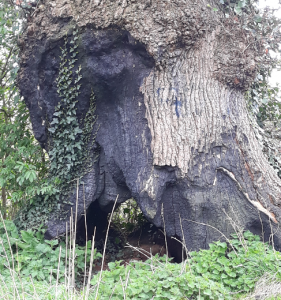Rejoice always. Pray without ceasing. Give thanks in all circumstances; for this is the will of God for you in Christ Jesus. (1 Thess 5.16-18)
“You expect me to do what?!” My friend seemed incredulous. She was deeply upset. We were discussing her distress and she was seeking my guidance. My suggestion confused her and, I gathered from her demeanour, angered her.
“How could you expect me to praise God for this?”
She had been expressing the lingering pain from a relationship breakdown and I was attempting to help her break the cycle of bitterness that was evident in her language – although she was unaware of this evidence. My suggestion was that she simply begin thanking God for his goodness every time she experienced a painful memory.
This is a practice I have been attempting to form into a habit in my own life.
Many years ago, I wise friend guided me through the reasons for being intentional in giving thanks to God in all circumstances. I had experienced a deep hurt which had impacted every area of my life. The pain and confusion would regularly return and, it felt, I would never really ‘get over’ it. One of the significant healing moments was when a friend asked me, “Is God only worthy of your thanks when things are going well?”
His question made me realise that when I focused on my own hurt, I did not relate with God very well. In fact, I usually forgot he was with me. When I felt the pain of the memories, I became self-absorbed. I would often repeat the conversations and each replay provided further reasons to feel justified in my hurt which increased my anger, which led, I’m sorry to admit, to a growing bitterness. My friend’s question forced me to realise that not only was I behaving very selfishly, but I was also ignoring God at a time I needed him the most.
Since that realisation, I have attempted to practice the three instructions Paul gives the Thessalonian Church: Rejoice, Pray and Give Thanks. These three practices, taken as a group, are a wonderful way, I have found, to break through the walls of bitterness and dismantle the infrastructure of self-reliance.
Rejoice always. I have much to celebrate. Even if life throughs me a curve ball or I come up against an unforeseen obstacle, there is great freedom in remembering that all things will work out for the good of those who love him and are called according to his purpose (Rom 8:28). And, the act of rejoicing, even in difficult times, is quite different from optimism. While optimism may be broader trait, or tendency of personality, rejoicing is a decision, an intentional act.
Pray without ceasing. I will not pretend to have grasped this but the writings of Desert Fathers, and contemporary mystics have created in me a thirst for a life of prayer. Daily habits of scriptural meditation, scripture memory and trigger prayers are helping form within me an ongoing awareness of God and interaction with Holy Spirit. The more I am able to consciously work toward this unconscious consistency, the less I find myself able to indulge in the harmful negativities of life.
Give thanks in all circumstances. To grasp the import of Paul’s instruction more fully, it is essential that we move beyond merely having an attitude of thankfulness. Having an ‘attitude of gratitude’ may be helpful baseline, but I believe we must learn the discipline of actually giving thanks – of verbally expressing thanks – in all circumstances.
This is where I felt the challenge from my friend all those years ago. It is easy to thank God for a situation that has worked out well, a particular blessing, or a joyful experience. But it is not so easy to give thanks to God in a difficult situation. Even though I would say he is always good, when I’m in a difficult situation it can be hard to stop and remind myself to give him thanks. But doing so, gives him honour, helps me keep my eyes off my circumstances and helps me realise that the entirety of my life is bigger than what I feel in this singular moment.
The fact that we are in a singular moment in time leads to possibly the most important principle to the act of thanking God in all circumstances. Regardless of how long it may feel, the time we spend in a struggle, a painful experience or a loss is a relatively short period of life. I am learning how beautiful it is to give God my thanks and praise when I’m in the middle of difficulties. My intentional choice to verbally thank God for his goodness while I’m hurting, confused or struggling is a gift I will never be able to give God once these emotions pass. Once the moment passes, I will be able to thank God that he was there while I was in the challenge. But when I’m in the challenge, struggling to find a way through the fog of confusion or wrestling with gut-wrenching disappointment, my ‘sacrifice’ of thanks expresses my thanks for his goodness with a genuine authenticity and humility that I’ll never be able to recreate. I want to become a man who can honour God with the glory he is due, regardless of how I may feel in challenging circumstances of life.
“I’m doing much better. I feel a new freedom and my relationship with the Lord is more real.” It had been several months since I’d seen her, and she looked like a different woman. “I’ve been trying to give thanks in all circumstances, and it is changing my perspective.”
She, too, is learning the blessing of rejoicing always, praying consistently and giving thanks in all circumstances.
Sean Copeland, September 2023

